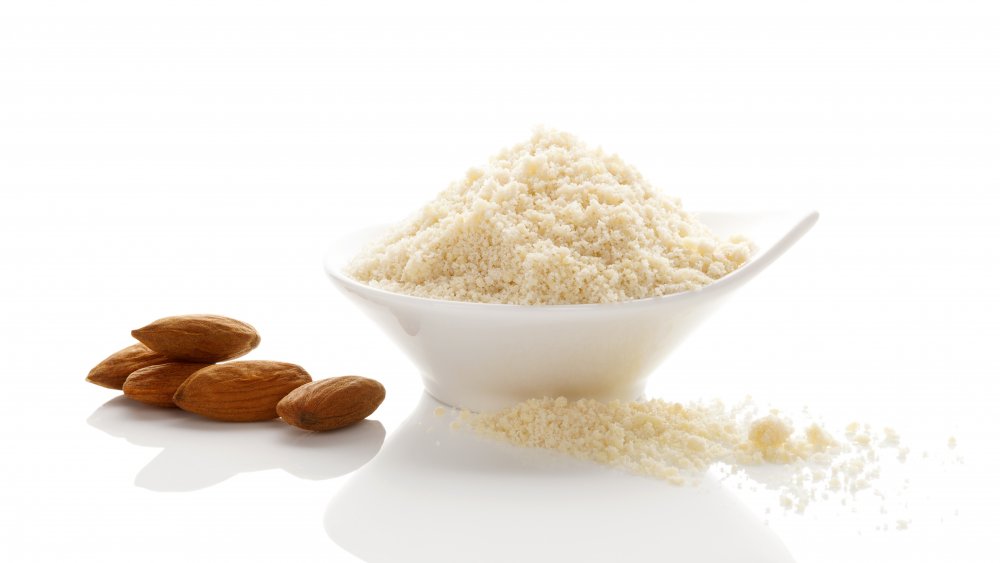Here's What You Can Substitute For Almond Flour
Almond flour is made from finely-ground raw almonds that have first been blanched and peeled, so it has a more neutral, less nutty flavor than almond meal, a substance made from raw almonds that haven't been subject to the blanching and peeling treatment before grinding. Both of these nut-based flours are typically used in gluten-free cooking as an alternative to wheat-based flours, and are also popular ingredients for those on the keto diet.
In a recipe where texture isn't such an issue and a slightly nutty flavor might be more of an asset than otherwise, almond meal can be used interchangeably with almond flour — cookies and quick bread are two examples of recipes in which either almond meal or almond flour may be used (via Minimalist Baker).
But what if you have neither on hand, or you are allergic to (or just don't care for) almonds? What, then, can you substitute for almond flour? There are several different alternatives you could use, although each might impart a subtly different flavor or require some alterations to the recipe.
Almond flour alternatives
If you're wanting to stay gluten-free, you can substitute either pumpkin seed or sunflower seed meal on a cup-for-cup basis. You can also substitute coconut flour, which tends to be less expensive and more readily available than pumpkin seed and sunflower meals, but if you choose coconut flour, you will need to make significant recipe changes. As coconut flour is way more absorbent than almond flour, you'll need to reduce the amount of flour you're using. For each cup of almond flour called for, use just ¼ cup of coconut flour, and also add one extra egg. You may still need to add extra liquid to get your batter to the right consistency, but if you overdo it on the liquid and need more coconut flour, add just one teaspoon at a time (via ruled.me).
If you have a recipe calling for almond flour but you don't really need the end product to be gluten-free, you can always replace the almond flour with all-purpose flour. Bear in mind, though, that recipes with almond flour tend to require more eggs as a binding agent to compensate for its lack of gluten, so using a flour that does contain gluten may necessitate reducing the amount of egg used (via MOMables).

